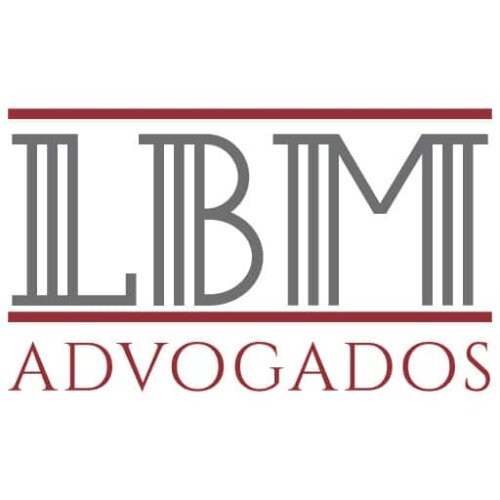Best Private Equity Lawyers in Portugal
Share your needs with us, get contacted by law firms.
Free. Takes 2 min.
Or refine your search by selecting a city:
List of the best lawyers in Portugal
About Private Equity Law in Portugal
Private Equity (PE) law in Portugal governs the investment of funds into private companies that are not publicly traded. The objective of private equity is typically to acquire or invest in businesses with growth potential, optimize their operations, and eventually exit with profit, often by selling the business or launching it on the stock exchange. In Portugal, the activity is supported by a developed legal and regulatory framework that aims to foster investment while protecting both investors and target companies. The main players are private equity funds, fund managers, investors, and target companies operating under the supervision of regulatory bodies such as the Portuguese Securities Market Commission (Comissão do Mercado de Valores Mobiliários or CMVM).
Why You May Need a Lawyer
Navigating private equity transactions in Portugal can be complex due to legal, regulatory, and commercial considerations. There are multiple situations where seeking the assistance of a lawyer is crucial:
- Structuring Investments: Legal advice can help determine the most efficient and advantageous structure for your investment, taking into account tax, liability, and regulatory factors.
- Due Diligence: Lawyers conduct thorough due diligence to assess the legal and financial health of a target company and uncover potential risks.
- Drafting Contracts: Transaction documentation such as investment agreements, shareholder agreements, and sale-purchase contracts require legal precision to protect your interests.
- Regulatory Compliance: Private equity in Portugal is subject to strict regulations, including those covering anti-money laundering, financial reporting, and investor disclosures.
- Negotiations: A lawyer can represent your interests during negotiations with other stakeholders, ensuring an equitable and enforceable outcome.
- Exiting Investments: Legal guidance is necessary to structure and execute a proper and profitable exit through either sale, merger, or IPO.
Local Laws Overview
Private equity in Portugal is mainly regulated by the Legal Framework of Collective Investment Undertakings, the Commercial Companies Code, and regulations issued by the CMVM. Some key aspects include:
- Fund Structure: Private equity funds can take the form of investment companies or funds managed by licensed management companies.
- Licensing and Supervision: Both funds and their managers must be authorized and supervised by the CMVM.
- Investor Protections: Regulatory requirements ensure transparency, fair treatment of investors, and reporting duties.
- Mergers and Acquisitions: Acquisitions of shares in Portuguese companies, especially in sensitive sectors, may require regulatory notifications or approval.
- Taxation: The tax regime for private equity is generally favorable, but varies according to the investment structure and domicile of investors.
- Employment and Labor: Transactions may trigger employment issues, such as transfer of undertakings and employee rights, which are regulated by Portuguese labor law.
Frequently Asked Questions
What is private equity in the context of Portugal?
Private equity involves investing in private Portuguese businesses with the aim of fostering growth, improving operations, and later realizing a profit through an exit. This is typically done via investment funds or companies focused on non-listed businesses.
Who regulates private equity in Portugal?
The Portuguese Securities Market Commission (CMVM) is the main regulatory authority overseeing private equity activities in Portugal, including the licensing of fund managers and supervision of funds.
How are private equity funds typically structured in Portugal?
Private equity funds can be structured as investment companies (sociedades de investimento) or as contractual funds managed by authorized fund management companies. Both structures require CMVM authorization.
Are there restrictions on foreign investors in Portuguese private equity?
There are generally no restrictions on foreign investors, but investments in sensitive sectors such as defense, energy, or telecommunications may require additional regulatory approvals.
What are the main legal steps involved in a private equity transaction?
The key steps include initial negotiations, legal and financial due diligence, structuring the investment, drafting and negotiating contracts, obtaining regulatory approvals if required, and closing the transaction.
What are common risks associated with private equity in Portugal?
Risks include exposure to business and financial risks of the target, regulatory and compliance issues, tax risks, and possible disputes with other shareholders or stakeholders.
How are private equity investments taxed in Portugal?
The tax treatment depends on the structure of the fund and the investors' status. Generally, Portuguese private equity funds enjoy favorable tax treatment, but it is recommended to consult a tax advisor for specifics.
How is due diligence conducted in a Portuguese private equity transaction?
Due diligence involves a comprehensive review of the target’s legal, financial, commercial, and regulatory position. Lawyers play a key role in identifying legal liabilities and contractual risks.
What happens if a dispute arises between investors or with the management team?
Disputes are usually addressed in accordance with the terms of shareholder or investment agreements, often providing for negotiation, mediation, or arbitration as dispute resolution methods.
How do I exit a private equity investment in Portugal?
Exits are typically achieved through a sale to a strategic buyer, secondary buyout, or an initial public offering (IPO). Each option involves specific legal steps and may require regulatory clearance.
Additional Resources
If you require more information or need institutional support, consider the following resources and organizations:
- Portuguese Securities Market Commission (CMVM): Regulatory body for the supervision of securities markets and investment funds.
- Associação Portuguesa de Capital de Risco (APCRI): Portuguese private equity and venture capital association representing the interests of PE firms and investors.
- Portuguese Tax Authority: For guidance on the tax implications of private equity transactions.
- Commercial Registry Offices: For company and transaction filings.
- Law Firms Specialized in Private Equity: Many Portuguese and international law firms offer dedicated private equity teams.
Next Steps
If you are considering involvement in a private equity transaction in Portugal, or need legal advice, it is advisable to follow these steps:
- Identify your investment goals and the scale of the transaction you wish to undertake.
- Consult specialized legal professionals with experience in Portuguese private equity transactions.
- Request an initial assessment to understand the legal and regulatory landscape as it applies to your specific situation.
- Engage in comprehensive due diligence before committing to any investment or transaction.
- Work closely with your legal advisors to structure, negotiate, and finalize all agreements and regulatory requirements.
- Continue to seek legal support throughout the life of your investment, especially when planning an exit or if any disputes arise.
A qualified private equity lawyer can provide detailed guidance tailored to your circumstances and ensure that your interests are protected at every stage of the investment process in Portugal.
Lawzana helps you find the best lawyers and law firms in Portugal through a curated and pre-screened list of qualified legal professionals. Our platform offers rankings and detailed profiles of attorneys and law firms, allowing you to compare based on practice areas, including Private Equity, experience, and client feedback.
Each profile includes a description of the firm's areas of practice, client reviews, team members and partners, year of establishment, spoken languages, office locations, contact information, social media presence, and any published articles or resources. Most firms on our platform speak English and are experienced in both local and international legal matters.
Get a quote from top-rated law firms in Portugal — quickly, securely, and without unnecessary hassle.
Disclaimer:
The information provided on this page is for general informational purposes only and does not constitute legal advice. While we strive to ensure the accuracy and relevance of the content, legal information may change over time, and interpretations of the law can vary. You should always consult with a qualified legal professional for advice specific to your situation.
We disclaim all liability for actions taken or not taken based on the content of this page. If you believe any information is incorrect or outdated, please contact us, and we will review and update it where appropriate.
Browse private equity law firms by city in Portugal
Refine your search by selecting a city.
















